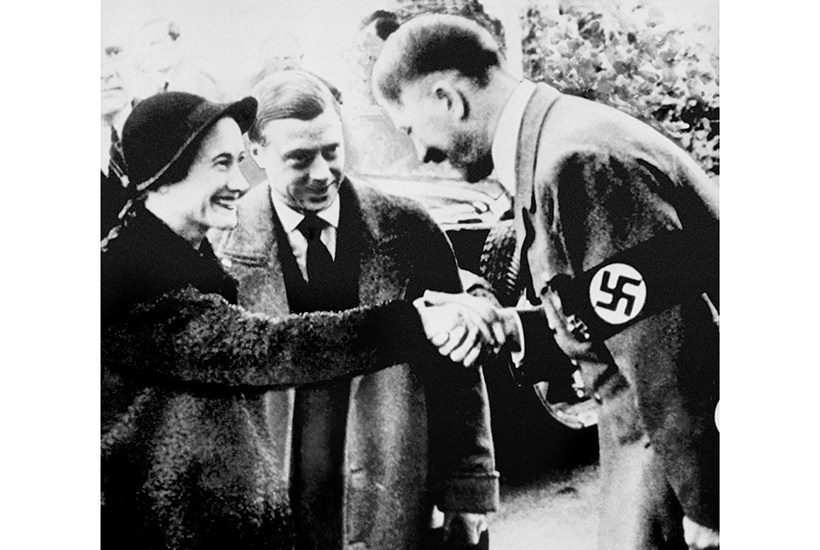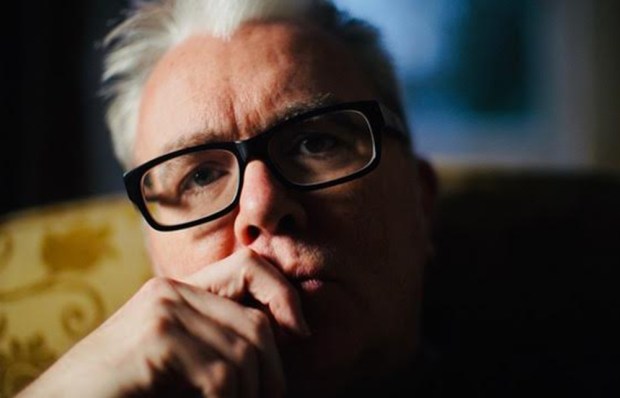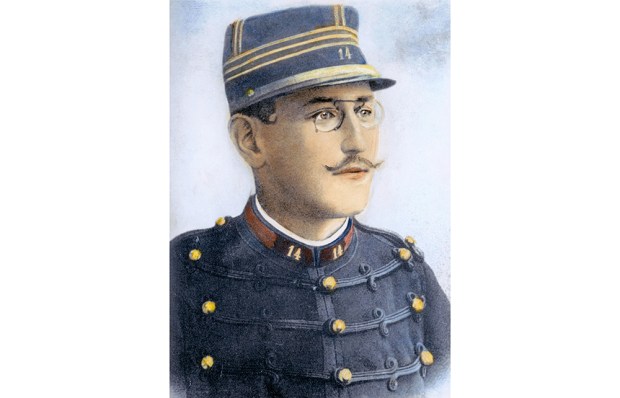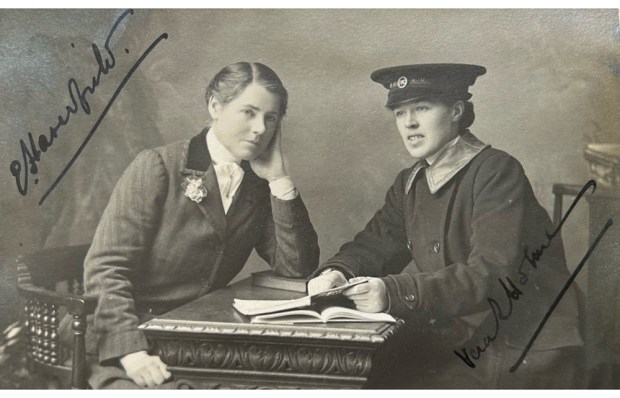In Traitor King, Andrew Lownie shows how the Duke of Windsor — the former Edward VIII, who abdicated in 1936 — gave aid and comfort to his country’s enemies before and during the second world war. Reading this meticulously researched book, it seems extraordinary that he remained at liberty. A less deferential society would have interned him in 1940 along with the followers of his friend Oswald Mosley, most of whom were far less dangerous. He could even have been tried for treason after the war.
To Lownie, the duke was an aberration, a one-off. But in Tea with Hitler, Dean Palmer shows us a family into which he fitted naturally. In trying to ensure the peaceful future of Europe, Queen Victoria scattered her relatives throughout its royal houses in a series of dynastic alliances. She had so many children and grandchildren, often with similar names and titles, that it’s not always easy to follow them, even with the family trees Palmer helpfully provides. The big picture, however, is clear — of cousins living, and to some extent ruling, throughout Europe in the 20th century. But Victoria’s hopes were dashed when their diplomatic usefulness melted like snow on contact with the brutal realities of politics and modern warfare.
In 1914 the Kaiser’s brother, Prince Henry of Prussia, visited George V at Buckingham Palace. The king had intended to make clear that Britain would be drawn into the conflict if Austria proceeded against Serbia; but Prince Henry thought he had said the opposite. These two amateur diplomats did no good, and may have done harm. And that was just the start.
The Duke of Windsor was one of many of European royal blood who flailed frantically and unhappily in the mess of conflicting loyalties which two world wars created. He felt more German than English — Palmer tells us that his grandfather Edward VII spoke English with a German accent when he acceded to the throne in 1901 — and he had cousins in Germany to whom he believed he owed family allegiance. In the 1930s some of them became top Nazis.
One of these, Charles Edward, was brought up in England until Queen Victoria withdrew him from Eton when he was 14 and sent him to be Duke of Saxe-Coburg-Gotha. After the first world war he became an ardent Nazi, Hitler’s diplomatic channel to the British establishment and the organiser of the Duke of Windsor’s foolish trip to meet Hitler in 1937. In 1945 he was tried for war crimes, and he died in povertyin 1954.
Palmer describes the mostly conventional, undistinguished men and women of European royal birth brought up to do nothing for themselves. Remove the trappings of sovereignty suddenly, leaving great wealth with no position, and you have the Duke of Windsor, living a gilded, lonely, pointless life. The following is an account he gave the wife of an American diplomat of his first day in Paris, his home after the war:
I got up late, and then I went with the Duchess and watched her buy a hat, and then on the way home I had the car drop me in the Bois to watch some of your soldiers playing football… When I got home the Duchess was having her French lesson, so I had no one to talk to… You know I’m not much of a reading man.
But our mainstream royals were also politically stupid and small-minded. As late as 1939, George VI, a convinced appeaser, was writing that he was glad steps were being taken to prevent ‘these people [Jews] from leaving their country of origin [Germany]’. And the palace didn’t invite the Duke of Windsor to his mother’s 80th birthday lunch.
Both Lownie and Palmer provide meticulous research and telling detail in lively prose. Palmer is a television producer and Lownie a literary agent, who has represented several non-academic writers of history (myself included). The conclusion I draw from Palmer is that, since the ultimate purpose of our hereditary monarchy — ensuring a peaceful Europe, whose crowned heads could talk to each other as cousins — failed spectacularly, the sooner we become a republic and elect a president the better. Lownie suggests that, should we do so, we owe a duty of care to the royal family for a few generations — until they learn to fend for themselves and find ways to make their lives meaningful.
Got something to add? Join the discussion and comment below.
Get 10 issues for just $10
Subscribe to The Spectator Australia today for the next 10 magazine issues, plus full online access, for just $10.
You might disagree with half of it, but you’ll enjoy reading all of it. Try your first month for free, then just $2 a week for the remainder of your first year.














Comments
Don't miss out
Join the conversation with other Spectator Australia readers. Subscribe to leave a comment.
SUBSCRIBEAlready a subscriber? Log in